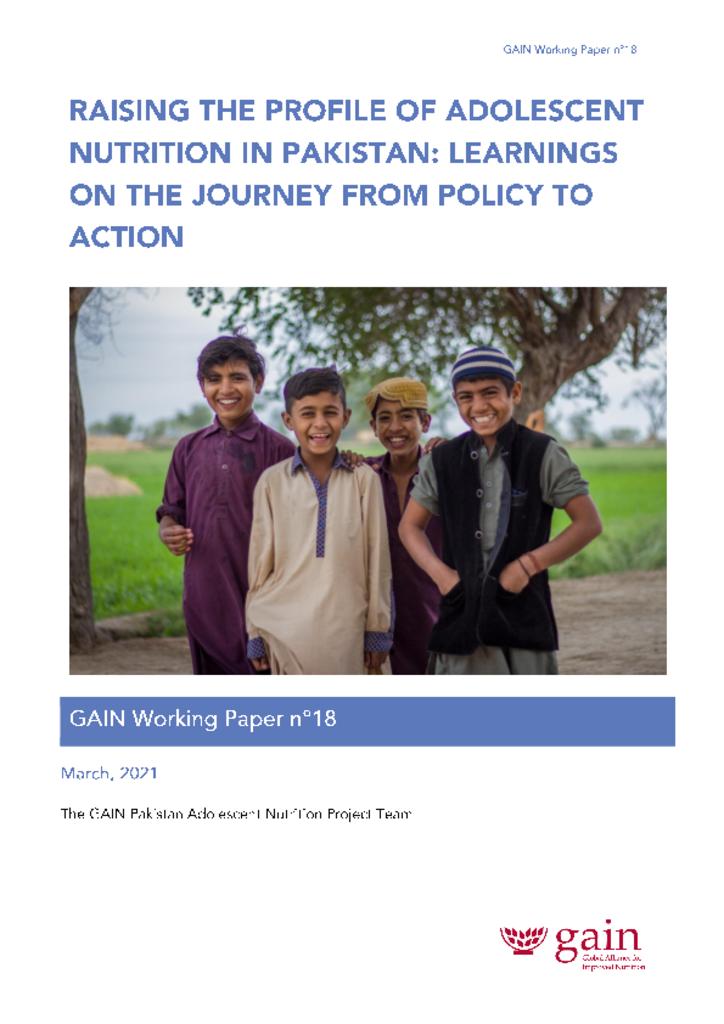Pakistan’s adolescent population (circa. 40 million people) is experiencing a double burden of malnutrition, with 21% of boys and 12% of girls underweight and 18% of boys and 17% of girls overweight or obese. This merits a call to action to prioritise public funding and programming to address the determinants of adolescent malnutrition.
Fortunately, the Pakistan Adolescent Nutrition Strategy (PANS), launched in October 2020, is an inspiring example of how political will can translate into effective policy and operational planning and create a framework through which health and social system actors can understand the role they play in preventing and treating adolescent malnutrition. Prior to the launch of PANS, the Government of Pakistan and its partners, including the Global Alliance for Improved Nutrition (GAIN), worked to better understand the status of adolescents’ nutritional status, raise the profile of adolescent nutrition in Pakistan and stimulate action on the topic.
This paper seeks to provide an overview of the enabling environment milestones on the journey to PANS. It seeks to aid in implementation of PANS by applying the Innocenti Framework on Food Systems for Children and Adolescents to examine certain determinants of adolescent diets, specifically trends in consumption and food behaviours and motivations of adolescents. The analysis makes clear that there has been significant progress in creating an enabling environment for adolescent nutrition and addressing fundamental data gaps, including collecting the first nationally representative data on adolescent nutrition.
These findings can further inform research and programmes, fostering wider cross-system collaboration under which food system actors recognise their potential in shaping a food system that works for adolescents.
